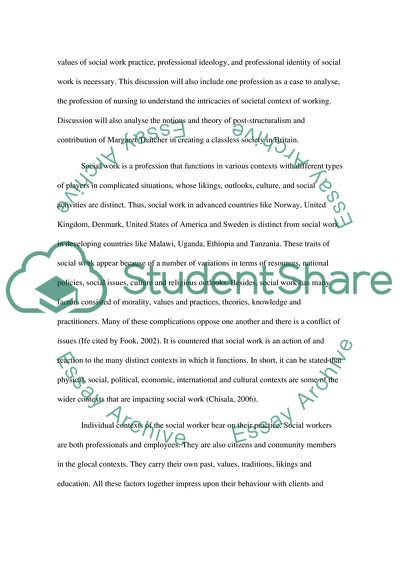Cite this document
(The Societal Context of Professional Working Essay Example | Topics and Well Written Essays - 4000 words, n.d.)
The Societal Context of Professional Working Essay Example | Topics and Well Written Essays - 4000 words. https://studentshare.org/sociology/1823365-the-societal-context-of-professional-working
The Societal Context of Professional Working Essay Example | Topics and Well Written Essays - 4000 words. https://studentshare.org/sociology/1823365-the-societal-context-of-professional-working
(The Societal Context of Professional Working Essay Example | Topics and Well Written Essays - 4000 Words)
The Societal Context of Professional Working Essay Example | Topics and Well Written Essays - 4000 Words. https://studentshare.org/sociology/1823365-the-societal-context-of-professional-working.
The Societal Context of Professional Working Essay Example | Topics and Well Written Essays - 4000 Words. https://studentshare.org/sociology/1823365-the-societal-context-of-professional-working.
“The Societal Context of Professional Working Essay Example | Topics and Well Written Essays - 4000 Words”. https://studentshare.org/sociology/1823365-the-societal-context-of-professional-working.


